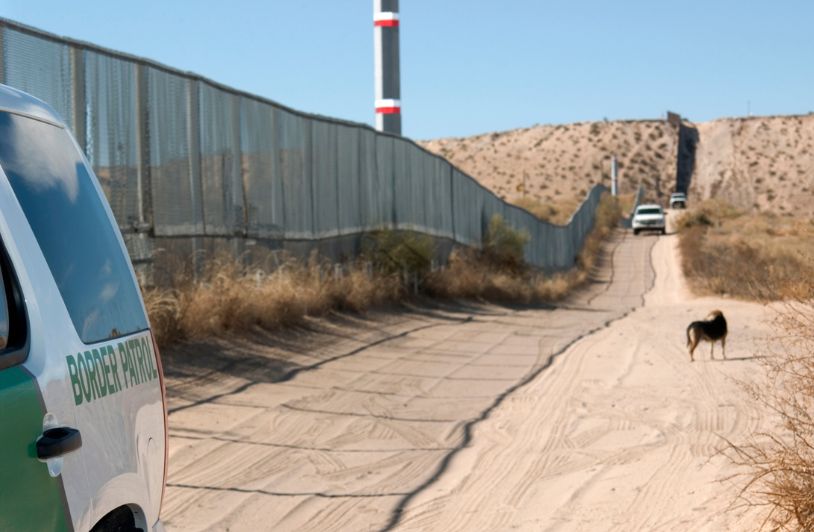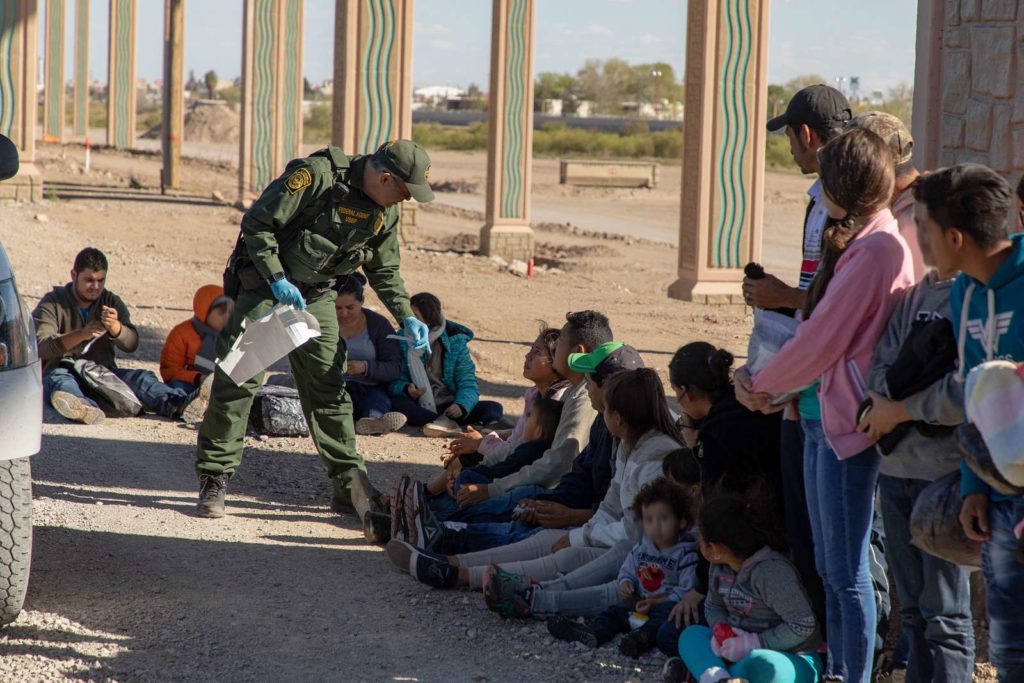Immigration Has Become Too Hot and Too Complicated a Political Potato To Ignore
Two years into his presidency, Joe Biden has acknowledged that there is a problem on the border.
After no one in Congress took seriously his Day One call for an immigration law package, Joe Biden turned to other issues – over time winning several spending passages and falling short on several civil rights and social service efforts.
In that time, border issues worsened: Migrants and cartels seeing opportunity as the U.S. moves away from restrictive Donald Trump administration policies, Mexico and Central American countries have grown lax in stopping migrants, and humanitarian concerns have ballooned among record numbers of authorized crossings and returns.
Politically, the issue has become raw meat for Republican opponents who can’t stop talking about Biden’s “open borders,” despite record expulsions as well as entries. Republican governors are sending busloads or planeloads of migrants to Washington and other Democrat-led cities as if embarrassment will solve the problems.
In short, immigration has become too hot and too complicated a political potato to ignore.
Biden is getting as much pressure from Democrats, who see a humanitarian crisis, as Republicans, who see it as a security ill, on various aspects of the intractable border morass. Blaming congressional inaction doesn’t solve anything, so Biden is suddenly moving to make executive order changes in immigration.
Why these moves were delayed until now remains unclear.
CLICK HERE TO SUPPORT OUR NONPROFIT AND READER SUPPORTED NEWS GATHERING
Biden’s Announced Changes
As he fully acknowledges, he can’t solve it all, but he can take steps, starting with a border visit to El Paso on Sunday and a meeting with Mexican president Andrés Manuel López Obrador.
Those won’t do much more than show he is aware that his administration has been less than effective on this issue and to serve as countervailing photo ops to daily poundings from opponents.
Specific actions being ordered include:
- Allowing up to 30,000 migrants from Cuba, Nicaragua, Venezuela, and Haiti to legally apply for entry to the United States each month.
- Tripling the number of refugees that the United States accepts each year from the Western Hemisphere, to 20,000.
- A crackdown on those who cross illegally, along with telling new migrants not to show up on the border.
- Money for cities dealing with huge numbers of migrants in need of shelter and food.
In recent months, nearly one million immigrants were naturalized after drastic cutbacks in legal entry during covid and the Trump era. The courts have courts have issued contradictory opinions about public health and immigration rules, especially where covid is concerned. States like Texas and Arizona are acting on their own to use National Guardsmen or use shipping containers as a makeshift border wall. As cutbacks roll through tech companies, foreign visas are at risk.
House Republicans want investigations into the administration’s handling of the border and to start impeachment proceedings against Homeland Security Secretary Alejandro N. Mayorkas, something that may have been an easy bargaining chip among congressional right-wingers in their struggle with newly elected Speaker Kevin McCarthy (R-Calif.). Meanwhile, migrants in crossings like El Paso are overwhelming local city and nonprofit resources.
Officials have said that most of the recent migrants from Central and South America that are trying to cross into the United States through Mexico are from Venezuela, Cuba, Haiti, and Nicaragua.

Applying from Abroad
Biden’s changes say that people in those four countries will be allowed to apply for entry to the United States using a phone app while still in their home countries. If they can find a sponsor — a relative, church, or nonprofit group — pass a security screening and pay for a flight, they will be allowed to live and work legally in the United States. Migrants who seek to pass through Mexico would be ineligible for the new program. Those who try to cross into the United States will be expelled to Mexico, which has agreed to accept up to 30,000 migrants each month from the four countries.
The thinking is that this will reduce the numbers making the dangerous journey across the border, in a manner that had reduced Venezuelan migrants. Still, the numbers arriving at the border now are huge, as many as 9,000 on some days.
Biden also said an increase in the use of tougher enforcement measures at the border will allow agents to more quickly expel migrants trying to cross between the ports of entry. Agents will also use the Trump era rule to prevent migrants passing through a third country from seeking asylum in the United States unless they have applied for asylum in another country first. Doing so will require public hearings.
Generally, immigration advocates argue that these moves will make it more difficult to file for asylum, which is guaranteed under international law.
But the failure to recognize and force a more comprehensive approach to the border problem by all government agencies has simply led to loads of human and political problems and uncertainties for business and smuggling efforts.
Read more from Terry Schwadron by clicking HERE.




